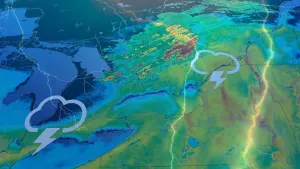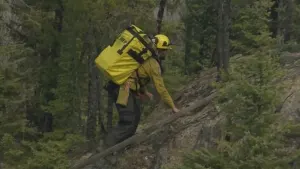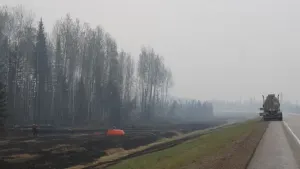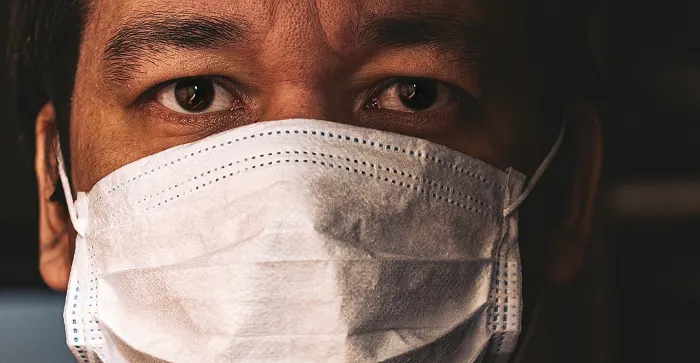
Coronavirus: Here's what's happened so far
Coronoavirus news is changing quickly. Here's a look back at what's happened over the month of March.
COVID-19 news is changing by the hour.
Here's what happened today and some noteworthy stories from the month of March.
See April's daily headlines here.
For more updates and resources, click here.
MARCH 31, 2020
TOTAL NUMBER OF CASES IN CANADA (as of 11:00 a.m. EST): 8,220
TOTAL NUMBER OF COVID-19-RELATED DEATHS IN CANADA: 95*
NOTE: These numbers will likely change through the day but may not be immediately reflected on the Government of Canada's website.
Toronto cancels all public events until June 30
Toronto Mayor John Tory is cancelling all permits for major events until June 30, including the city's annual Pride Parade, scheduled for late June -- but says Pride Month will still continue in some form.
Ontario schools to remain closed through April
Ontario Premier Doug Ford has pushed back the anticipated return-to-school date, which was originally set for April 6.
Publicly-funded schools will now be closed until at least May 1 for teachers and May 4 for students.
Private schools and daycares will be closed for another two weeks, but Ford conceded closures may have to be extended further.
When asked why the government hasn't chosen to cancel classes for the remainder of the academic year, education minister Stephen Lecce said officials are holding out hope that classes will be able to resume before the end of the school year.
Novel coronavirus disease has killed 9
Novel coronavirus disease has killed 9 residents of Pinecrest Nursing Home in Bobcaygeon, Ont.
Since word came out March 26 that two residents at the Pinecrest Nursing Home had died, seven more have succumbed to COVID-19. More than a third of its staff (24 people) tested positive for the disease and results for six other staff members are pending, according to the Haliburton, Kawartha, Pine Ridge District Health Unit.
Ontario closes recreational spaces
Ontario's Ford government has ordered the closure of all communal or shared, public or private, outdoor recreational amenities across the province, effective immediately.
Under the order, all recreational spaces -- including playgrounds, dog parks, sports fields, basketball and tennis courts, beaches, condo parks and gardens, and other related facilities -- are now closed.
Green spaces in parks, trails, ravines, and conservation areas that aren't closed can still be walked through, provided the public maintains a distance of at least two metres from others.
MARCH 30, 2020
Ontario confirms 351 new COVID-19 cases, its biggest jump so far
Ontario reported another 351 new cases of COVID-19, replacing Sunday's record-high of 211 new cases.
There are now 1,706 confirmed cases of COVID-19 in Ontario, a figure that includes deaths and recoveries.
So far, 23 deaths have been confirmed in the province.
MARCH 29, 2020
More support for those in need
On Sunday, Prime Minister Justin Trudeau announced new federal funding for people experiencing higher levels of stress because of self-isolation policies — including children, seniors, the homeless and victims of violence at home. The federal government will contribute $7.5 million to Kids Help Phone to hire more counsellors. Children feeling anxious should go online, call 1-800-668-6868, or text 686868 to reach the service.
The government will also increase aid for Canadian seniors, contributing $9 million through United Way Canada to help the country's older population get groceries, medication and other essential items.
B.C. experimenting medications to treat COVID-19 patients
Patients with COVID-19 in B.C. are being treated with HIV and malaria medications. Nearly 900 people have tested positive for the virus provincewide. Because a vaccine won't be ready for up to 18 months, researchers have turned to existing medications to treat COVID-19.
MARCH 28, 2020
No more domestic travel by plane or train for those showing coronavirus symptoms
The federal government announced Saturday those exhibiting coronavirus symptoms will no longer be able to travel by air or rail between provinces and cities in Canada. The restrictions come take effect at noon ET on Monday and apply to anyone showing signs of the virus, which include a cough, fever and difficulty breathin
MARCH 27, 2020
Justin Trudeau increases subsidy to impacted businesses
Prime Minister Justin Trudeau announced the government will give small businesses a 75 per cent salary subsidy in an effort to prevent COVID-19-related layoffs.
The funding is a major increase over the original 10 per cent proposed.
Trudeau says the funds will be retroactive until mid-March, with the details to be announced Monday.
Service Canada shutters its doors
The federal government has begu shutting down its public-facing service desks.
Most services can still be completed online, with additional online services expected to debut early next month.
MARCH 26, 2020
TOTAL NUMBER OF CASES IN CANADA (as of 8:00 a.m. EST): 3,385
TOTAL NUMBER OF COVID-19-RELATED DEATHS IN CANADA: 35
Quarantine Act will be enforced
Travellers returning to Canada from overseas are facing a new government order requiring them to self-isolate, the latest measure enacted to deal with both a rise in COVID-19 cases and growing economic fallout.
The ruling, which exempts health-care workers and truckers, provides fines and even jail times for people who ignore the order to stay home.
New emergency benefit plan announced
The federal government also announced a temporary program to help workers affected by the pandemic.The Emergency Response Benefit (CERB) is designed to provide funding to people losing income because of the outbreak. The CERB merges two previously announced programs into one as a way to streamline the process of applying for the funding, which will provide eligible workers $2,000 a month for four months.
MARCH 25, 2020
TOTAL NUMBER OF CASES IN CANADA (as of 8:00 a.m. EST): 1,959
TOTAL NUMBER OF COVID-19-RELATED DEATHS IN CANADA: 27
Returning Canadians now mandated to stay home under the Quarantine Act
All Canadians returning home from travelling abroad will now be mandated to stay home under the Quarantine Act -- an escalation of previous self-isolation requests, which were asked voluntarily. Health Minister Patty Hajdu said the government "is done" asking returning Canadians to respect the request to go directly home and self-isolate for two weeks.
The order comes after several reports of returning Canadians going to grocery stores or out to run errands after returning home.
People who violate the mandatory order could face fines or prison time.
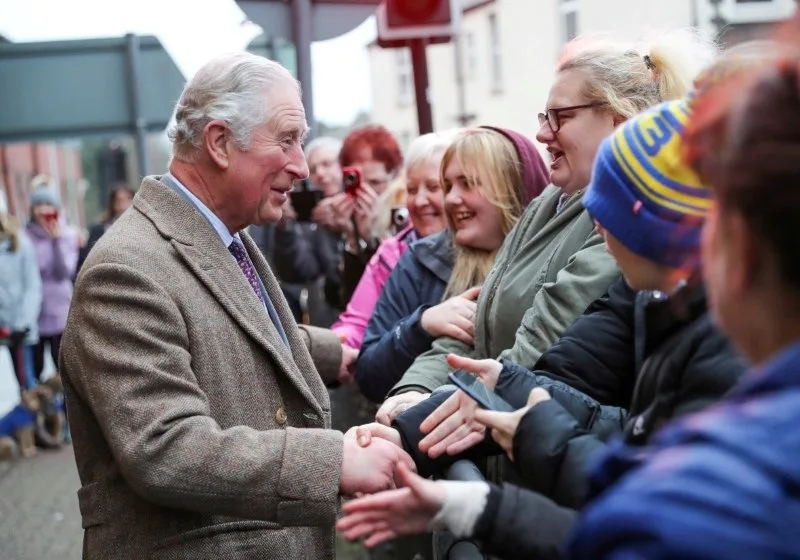
Britain's Prince Charles visits the town of Pontypridd affected by recent floods in Wales, Britain February 21, 2020. Chris Jackson/Pool via REUTERS/File Photo
Prince Charles tests positive for COVID-19
Prince Charles, 71-years-old and heir to the British throne, has tested positive for coronavirus and is self-isolating at a Scotland estate with mild symptoms.
His wife, Camilla, 72, has tested negative.
Charles last saw his mother, 93-year-old Queen Elizabeth on March 12, before he would have become infectious, Reuters reports.
MARCH 24, 2020
TOTAL NUMBER OF CASES IN CANADA (as of 8:00 a.m. EST): 1,646
TOTAL NUMBER OF COVID-19-RELATED DEATHS IN CANADA: 24
Workplaces in Ontario and Quebec that have been deemed "non-essential" or "at-risk" have until the end of Tuesday to close up shop.
Ontario Premier Doug Ford has ordered all non-essential stores and services to close at 11:59 p.m. on Tuesday in an attempt to slow the spread of COVID-19.
"While this was a difficult decision, we trust that Ontario's business leaders will be able to promote safety while carrying out business and protecting jobs," Ford said in a news release on Monday.
The full list of what will remain open in Ontario can be found, here.
MARCH 23, 2020
TOTAL NUMBER OF CASES IN CANADA (as of 8:00 a.m. EST): 1,472
TOTAL NUMBER OF COVID-19-RELATED DEATHS IN CANADA: 20
Olympics officially postponed
The International Olympic Committee (IOC) has decided to postpone the Tokyo 2020 Summer Games due to COVID-19.
"On the basis of the information the IOC has, postponement has been decided," IOC's Dick Pound was quoted as saying by Reuters.
"The parameters going forward have not been determined, but the Games are not going to start on July 24, that much I know."
Ontario to close all non-essential businesses, says schools likely won't re-open April
At a news conference, Ontario Premier Doug Ford announced the closure of all non-essential businesses. Essential manufacturers, supply chain providers, supermarkets, pharmacies, the LCBO, and takeout restaurants will remain open.
The order will go into effect at 11:59 p.m. Tuesday and last for 14 days.
A full list of the businesses that will be allowed to remain open has been released.
When asked about schools re-opening, Ford replied:
"Do I believe and does the Minister [of education] believe that April 6 the kids will be going back to school? The kids won't be going back to school on April 6."
Canada won't be sending athletes to 2020 Tokyo Games due to COVID-19 risks
The Canadian Olympic (COC) and Paralympic (CPC) committees stated they won't be sending athletes to compete at the Tokyo Games, which begin July 24, if they proceed as planned. Supported by the Athletes' Commissions, National Sport Organizations and the Government of Canada, the COC and CPC told CBC they "made the difficult decision to not send Canadian teams to the Olympic and Paralympic Games in the summer of 2020."
The graph above shows the accumulation of cases by province. Use the scroll bar located above the graph to zoom into a particular date. Source.
MARCH 22, 2020
TOTAL NUMBER OF CASES IN CANADA (as of 8:00 a.m. EST): 1,472
TOTAL NUMBER OF COVID-19-RELATED DEATHS IN CANADA: 20
N.W.T. shuts its borders as 1st case of COVID-19 confirmed in territory
As the Northwest Territories confirmed its first case of COVID-19, the government has shut down its borders in response. It is the first case from all three territories, which were the last provincial and territorial regions remaining in Canada to report zero cases of COVID-19.
Nova Scotia declares state of emergency
Nova Scotia is now among a growing list of provinces who have declared a state of emergency, and did so Sunday morning, in response to the COVID-19 outbreak. By doing so, the powers limit gatherings to no more than five people.
Police can now enforce orders under the Protection Act, as it relates to self-isolation and social distancing. As well, it can issue summary offence tickets for people not adhering to those orders. Anyone who has travelled outside the province will need to self-isolate for 14 days.
Parks in Halton close because of lack of social distancing, overcrowding
Conservation Halton was forced to close its parks indefinitely after a "massive" climb in the size of crowds and "poor behaviour," as health experts continue to plead for social distancing.
Crowds filled the parks on Saturday afternoon, with parking lots filling up quickly and lineups onto the main roads. The conservation group had tried to keep five of its seven parks open for as long as possible, albeit without facilities, programming or most staff except park rangers.
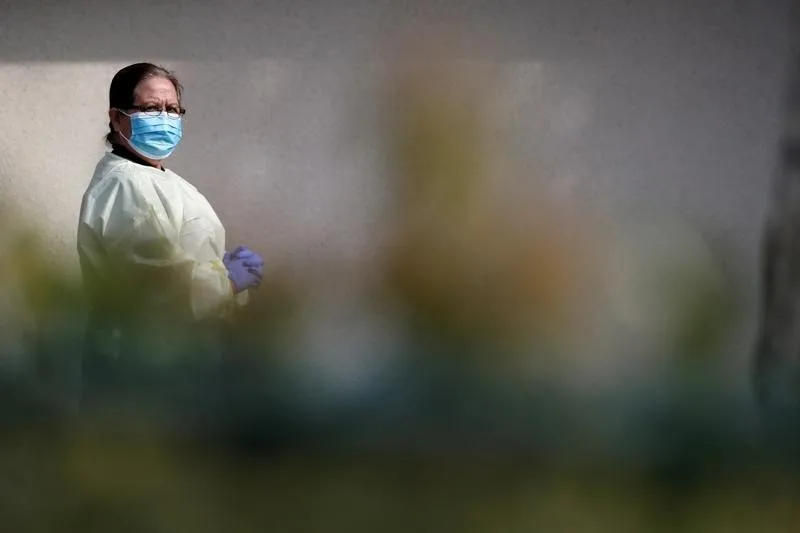
A medical staff member waits to assess people for coronavirus disease (COVID-19) at the public Victoria Health Unit in Victoria, British Columbia, Canada March 17, 2020. REUTERS/Kevin Light
MORE COVID-19 COVERAGE
MARCH 19, 2020
TOTAL NUMBER OF CASES IN CANADA (as of 11:30 a.m. EST): 736
TOTAL NUMBER OF COVID-19-RELATED DEATHS IN CANADA: 9
Strict measures announced in Newfoundland
Newfoundland is enacting some of the country's strictest restrictions -- including jail time -- for people and businesses who don't practice social distancing.
Most facilities, including gyms, bars, movie theatres, and arenas, have been closed. Some restaurants can remain open provided they meet social distancing criteria. Gatherings of more than 50 people are banned and anyone returning from international travel must self-isolate for 14 days.
Penalties include a fine of up to $2,500, jail sentences of 6 months and fines of up to $50,000 for corporations. Company directors may also be held liable for individual penalties.
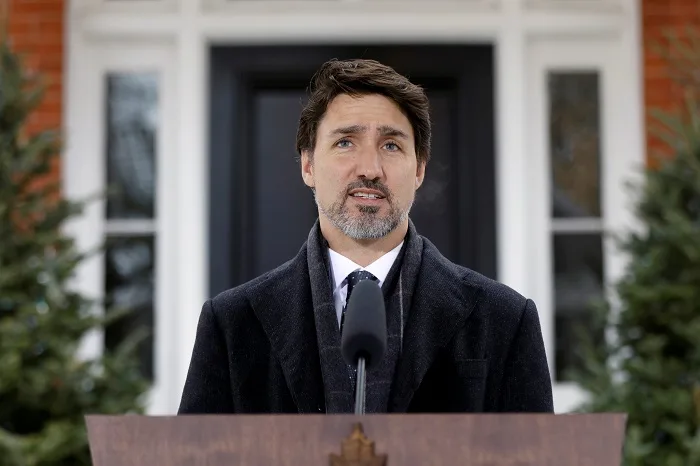
Canada's Prime Minister Justin Trudeau speaks at a news conference, amid the coronavirus disease (COVID-19) outbreak, at Rideau Cottage in Ottawa, Ontario, Canada March 19, 2020. REUTERS/Blair Gable
Quebec begins drive-thru testing
A drive-through COVID-19 screening clinic has opened in the former emergency room garage of Quebec's Chaveau Hospital. It is aiming to screen 100 people a day, the Montreal Gazette reports.
The site will operate 7 days a week. Patients can schedule an appointment by calling 1-877-644-4545.
MARCH 18, 2020
TOTAL NUMBER OF CASES IN CANADA (as of 8:00 a.m. EST): 569
TOTAL NUMBER OF COVID-19-RELATED DEATHS IN CANADA: 8
B.C., Saskatchewan declare states of emergency
B.C. has upgraded its public health emergency to a state of emergency which gives the provincial government power to regulate travelling within B.C. and acquire any land deemed necessary to aid in pandemic recovery efforts.
Saskatchewan has also declared a state of emergency after 8 new cases were diagnosed in the province.
New financial package announced
Speaking with reporters, Prime Minister Trudeau announced a new financial package designed to help citizens and businesses recover from the COVID-19 shutdowns.
It includes:
$27 billion in direct support to workers and businesses.
$55 billion to support businesses and households.
An emergency care benefit for up to 14 weeks for people who are forced to stay home, are ill or are taking care of sick family members and don't qualify for employment insurance.
Support funds for people who lose their jobs or have to stop work due to the virus.
Extending the tax deadline until August.
A temporary boost to the Canada Child Benefit.
Interest-free student loans for 6 months.
A boost to shelters for individuals fleeing violent households and an additional boost to support homeless Canadians.
An Indigenous community support fund.
Providing flexibility to lenders to defer mortgages.
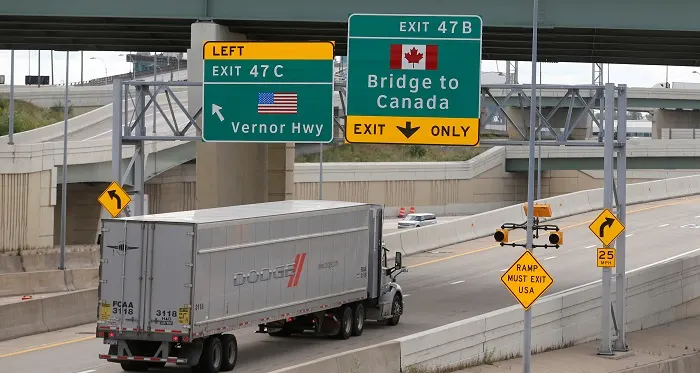
A commercial truck exits the highway for the Ambassador Bridge to Canada, in Detroit, Michigan U.S. August 30, 2018. REUTERS/Rebecca Cook/File Photo
U.S.-Canada border closure
In a tweet U.S. president Donald Trump announced the closure of the U.S.-Canada border to stop the spread of COVID-19 infection.
"We will be, by mutual consent, temporarily closing our northern border with Canada to non-essential traffic," Trump said on Twitter.
"Trade will not be affected. Details to follow!"
MARCH 17, 2020
TOTAL NUMBER OF CASES IN CANADA (as of 8:00 a.m. EST): 424
TOTAL NUMBER OF COVID-19-RELATED DEATHS IN CANADA: 4
B.C. public health emergency
B.C. has declared a public health emergency, with 83 new cases of COVID-19 reported in the province and three additional deaths.
B.C. has identified a total of 186 patients.
Alberta state of emergency
Alberta Premier Jason Kenne declared a state of public health emergency, elevating Alberta's Provincial Operations Centre from a level 3 to a level 4, which is the highest level.
Under the declaration, bars and casinos have shut immediately while restaurants and coffee shops have been givin seating limits.
First death recorded in Ontario, national death toll now sits at 5
Ontario's state of emergency declaration comes amid the province's first COVID-19-related death: a man in his 70s at Royal Victoria Hospital in Barrie. The national death toll now sits at 5, with 4 cases in B.C. and 1 in Ontario.
Ontario state of emergency
At an 8 a.m. press conference, Ontario Premier Doug Ford declared a province-wide state of emergency.

An assessment centre in Kingston, Ontario. Courtesy: Chris St. Clair.
Under the declaration all libraries, daycare centres, movie theatres, concerts, bars, and restaurants are now closed, although take-out and delivery are still permitted. Essential services remain open, as do grocery stores, convenience stores, pharmacies, and some construction sites and offices.
Gatherings of more than 50 people are also banned.
Ontario joins the City of Calgary, which declared a state of local emergency Monday.
MARCH 16, 2020
TOTAL NUMBER OF CASES IN CANADA (as of 12:00 p.m. EST): 324
TOTAL NUMBER OF DEATHS IN CANADA: 1 (at the start of the day)
Ontario closures
In an afternoon briefing with reporters, Ontario Medical Officer of Health Dr. David Williams said he is recommending a temporary closure of all restaurants to prevent the spread of the disease. The recommendation does not apply to take-out or delivery service.
Toronto officials have recommended the closure of all nightclubs and theatres, effective midnight Tuesday.
Three new deaths in B.C.
British Columbia recorded three new COVID-19-related deaths Monday.
There have now been four COVID-19-related deaths in the country. So far, all have been in B.C.
Provincial Health Officer Dr. Bonnie Henry said the three latest deaths are all connected to the Lynn Valley Care Centre in North Vancouver. The facility is in the midst of an outbreak, with at least 30 reported cases of COVID-19.
Prime Minister Justin Trudeau announces new travel measures
At a 1 p.m. press conference, Prime Minister Justin Trudeau announced new travel restrictions, including a partial closure of Canada's border. Going forward, the only people allowed into the country will be Canadian citizens, permanent residents, immediate family members of Canadian citizens, diplomats, aircrews, and U.S. citizens.
Trudeau has not ruled out closing the border to U.S. citizens and says he is working with health care experts to monitor the situation and make changes if necessary.
Travellers with COVID-19 symptoms will not be allowed to enter the country. Aircrews have been instructed to prevent passengers with symptoms from boarding aircraft.
All Canadians returning home from international travel are being asked to self-isolate for 14 days.
Calgary declares a state of emergency
The City of Calgary has declared a state of local emergency in response to the growing coronavirus pandemic Sunday night, with measures taking effect 12:01 a.m. Monday night.
"This is tough. People rely on these services as outlets for themselves, as places to go, for many, many people they are in fact lifelines," Mayor Naheed Nenshi told reporters Sunday night.
Closures don't apply to restaurants, bars, and cafes, but they will be required to keep their capacity to less than half of their normal capacity, or fewer than 250 people.
Travel restrictions
Canada Border Services Agency announces new enhanced screencing measures for all travellers from any international destination.
MARCH 15, 2020
Popular North American and European ski resorts shut down because of COVID-19
Alterra Mountain Company, which owns the popular Blue Mountain and Mont Tremblant resorts, and 13 others across North America, has suspended operations at all its resorts until further notice, due to the virus outbreak. All lift operations, food and beverage, retail and rental services are now closed until further notice.
It's not just happening on this side of the Atlantic, ski resorts in Europe are also implementing strict regulations, including closures, to limit the spread of the coronavirus.
Switzerland, which has more than 1,500 confirmed cases, launched a ban on gatherings of more than 100 people Friday. The ruling also applies to ski resorts. In Austria's western area of Tyrol, renowned for its popular ski resorts, where the country's first cases of the virus were reported, announced a full lockdown Sunday.
Other resorts shutting down include those in Colorado, Whistler, B.C., and France.
New cases confirmed in Ontario
Ontario is reporting 39 new cases of COVID-19, putting the province at a total of 142, with five classified as resolved. Most of the infections reported have originated from southern Ontario.
Worldwide cases increase, but risk to Canadians still low
To date, more than 150,000 people worldwide have been infected with the virus, while upwards of 5,600 deaths have been reported globally, including one person in British Columbia. N.L. and P.E.I. announced their first cases on Saturday and Saskatchewan confirmed its first two presumptive cases of the virus.
Even with the numbers on the rise, close to 300 in Canada now, Canadian public health officials say the risk to the public is still relatively low. They urge Canadians to frequently handwash and incorporate social distancing as preventative measures.
Canadians asked to return home
Global Affairs Canada has urged all Canadians currently abroad to cut their trips short and return home as soon as possible, while they still are able to. Countries around the world are beginning to enforce tighter travel restrictions. The recommendation is an escalation for the government, who previously had informed Canadians to cancel or postpone non-essential trips.
MARCH 14, 2020
Prince Edward Island confirms first case
P.E.I. Chief Public Health Officer Dr. Heather Morrison announced at a Saturday press conference the first known case of COVID-19 in the province, a woman in her 50s who had returned from a cruise on March 8, showing symptoms on March 10.
Schools close down, others move to online courses
It was previously announced that the Ontario government would be shutting down all publicly funded schools across the province for two weeks following March Break due to COVID-19.
As well, many Canadian colleges and universities are taking precautionary measures in light of the outbreak. This includes Laurentian University and the University of Toronto, cancelling face-to-face classes and switching to online courses for the time being.
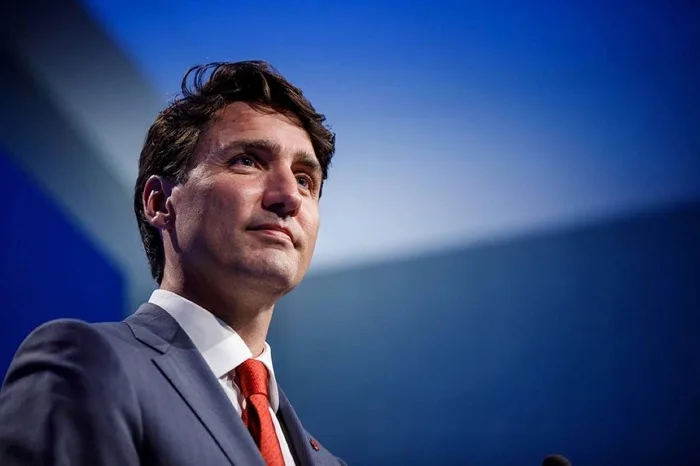
File photo Canadian Prime Minister Justin Trudeau in Canada. Justin Trudeau is self-isolating at home after his wife, Sophie Gregoire, tested positive for COVID-19. Gregoire is also self-isolating at home and her symptoms have subsided. Courtesy: Reuters
MARCH 13, 2020
Cruise restrictions: Transport Minister Marc Garneau has announced that no cruise ships carrying more than 500 people will be allowed to dock in Canada until at least July 1, citing COVID-19 transmission concerns.
This change has been added to the Government of Canada's travel advisories.
Airport restrictions: Garneau says there are also plans to impose restrictions on airports that can accept international flights so that authorities can keep a better eye on the passengers, but the list of airports hasn't been released yet.
Travel advisory: Canada's public health officer Dr. Theresa Tam advises all Canadians to avoid non-essential travel outside the country and to avoid large crowds.
Government assisance: Finance Minister Bill Morneau announced a $10 billion business credit line will be made available to support Canadian businesses that struggling to make ends meet as the COVID-19 pandemic spreads.
Because the full economic ramifications of COVID-19 will be 'hard to predict,' Morneau says another financial package will be announced in the coming days.
Speaking alongside Morneau, Bank of Canada Governor Stephen Poloz said the bank is cutting its overnight rate by half a point, to 0.75 per cent.
"It is already clear that the spread of the coronavirus is having serious consequences for Canadian families and for Canada's economy," Poloz said.
"In addition, lower prices for oil, even since our last scheduled rate decision on March 4, will weigh heavily on the economy, particularly in energy intensive regions."
CANADIAN INNOVATION IN THE FIGHT AGAINST COVID-19

Pictured left to right: Dr. Robert Kozak, Dr. Samira Mubareka, Dr. Arinjay Banerjee. Courtesy: Sunnybrook.
On Thursday, a team of Canadian researchers from Sunnybrook Research Institute in Toronto, McMaster University, and the University of Toronto has isolated COVID-19 virus, which will help scientists around the world develop better diagnostic testing, treatments, vaccines and "gain a better understanding of SARS-CoV-2 biology, evolution and clinical shedding," Sunnybrook said in a press release.
“Researchers from these world-class institutions came together in a grassroots way to successfully isolate the virus in just a few short weeks,” said Dr. Rob Kozak, a clinical microbiologist at Sunnybrook.
“It demonstrates the amazing things that can happen when we collaborate.”
Meanwhile, researchers at the University of Saskatchewan (U of S) are hard at work developing a COVID-19 vaccine.
The team at the Vaccine and Infectious Disease Organization at the International Vaccine Centre (VIDO-InterVac) at the U of S was awarded $1 million as part of a $26.7-million federal initiative to help contain the COVID-19 outbreak globally.
“You will be happy to hear we have already immunized animals with our vaccine. So we have already made a vaccine where we are in the animal phase where we’re testing it. We’re are hoping in a few weeks from the first trial we learn whether it works or not,” Dr. Volker Gerdts, project co-applicant and director of VIDO-InterVac, told local news.
This page will be updated frequently. Check back for more.







